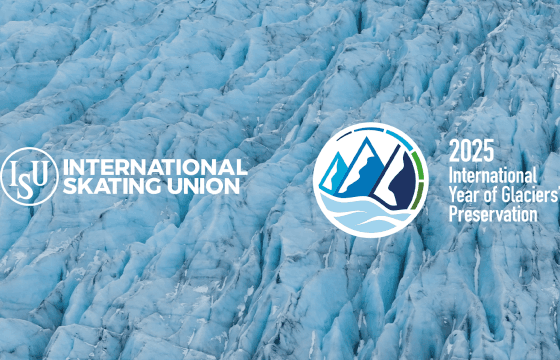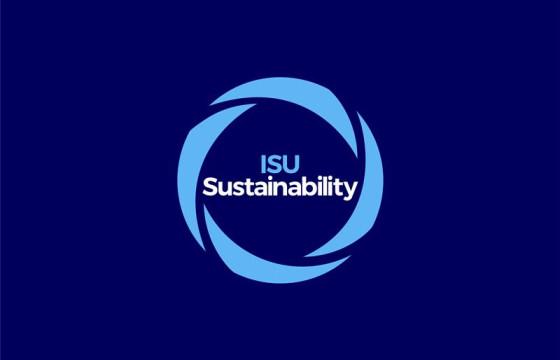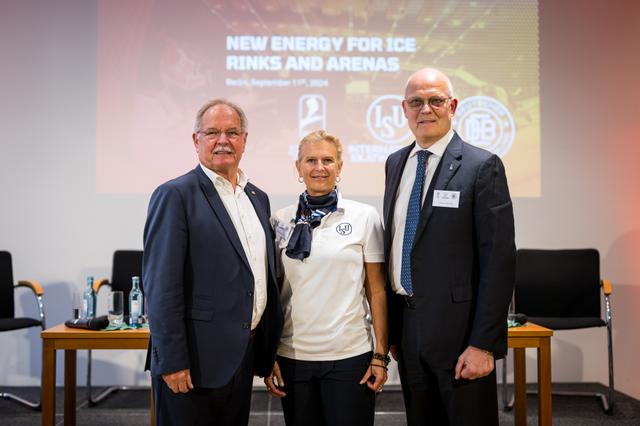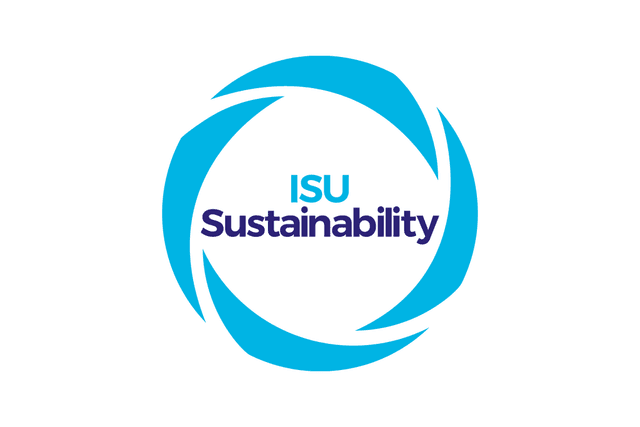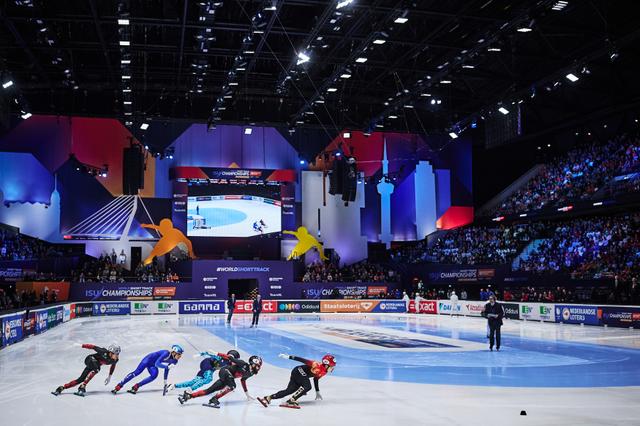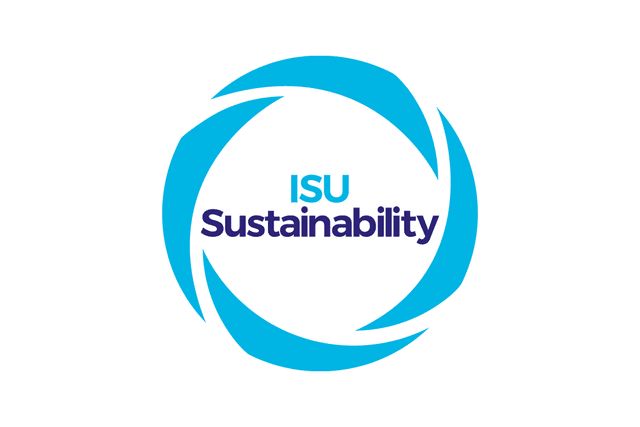Forty-two Ice Rinks Vanishing Every Second: ISU Marks Inaugural World Day for Glaciers with a Call to Action
 The International Skating Union (ISU) joins the global community in marking the first-ever World Day for Glaciers, highlighting the urgent need to protect these vital ice formations. As part of the United Nations (UN) “International Year of Glaciers’ Preservation” (IYGP 2025), the ISU reinforces its commitment to sustainability and ice stewardship, recognizing the critical role glaciers play in global water systems and climate stability (read here). This initiative aligns with the ISU Vision 2030 and the organization’s comprehensive Sustainability Strategy 2023-2030.
The International Skating Union (ISU) joins the global community in marking the first-ever World Day for Glaciers, highlighting the urgent need to protect these vital ice formations. As part of the United Nations (UN) “International Year of Glaciers’ Preservation” (IYGP 2025), the ISU reinforces its commitment to sustainability and ice stewardship, recognizing the critical role glaciers play in global water systems and climate stability (read here). This initiative aligns with the ISU Vision 2030 and the organization’s comprehensive Sustainability Strategy 2023-2030.
Read more here.
The International Skating Union (ISU) is the global governing body for the sport of ice skating and, established in 1892, it is the oldest governing winter sports federation. As part of its heritage, the ISU Council has committed to publish a detailed Sustainability Strategic Plan in 2023 with ambitious yet achievable targets that contribute to meeting its legal, regulatory and ethical obligations as a global sport organization.
In recognition of its responsibility to promote human rights and environmental regeneration, the ISU Council pledges to use its platforms, events, and activities to advocate sustainability as per the signed ISU Council Sustainability Commitment
 Climate change is dramatically impacting the planet, its people, and ISU sports. In communities around the world, indoor and outdoor ice rinks are crucial social and cultural hubs. The ISU recognizes that it must embrace sustainability as an imperative to protect its ‘licence to operate’ and fully maximizes the influence of ice skating as a force for positive behavioral change and planetary protection.
Climate change is dramatically impacting the planet, its people, and ISU sports. In communities around the world, indoor and outdoor ice rinks are crucial social and cultural hubs. The ISU recognizes that it must embrace sustainability as an imperative to protect its ‘licence to operate’ and fully maximizes the influence of ice skating as a force for positive behavioral change and planetary protection.
Across all stakeholder groups with which the ISU interacts, the ISU commits to sustainable development and to helping ensure that ice skating is conducted in a way that is environmentally sound, economically viable, socially responsible and contributes to achieving the United Nations Sustainable Development Goals (SDGs). In alignment with the “ISU Vision 2030” approved in June 2023, the ISU encourages all its stakeholders to support its sustainability journey, taking their own sustainability initiatives to regenerate nature and reduce their carbon footprint, therefore participating actively in the ISU's global efforts.
Mission
The ISU’s sustainability mission is to guide, inspire and influence good practice, responsible behavior and innovation throughout the sport of ice skating, ensuring current and future generations can continue to participate in the sports of Figure Skating, Synchronized Skating, Speed Skating and Short Track Speed Skating.
Vision: ISU sustainability strategic commitments
1. Ice Rinks: encourage regeneration, sustainable innovation and efficiency.
2. Circularity and Carbon: reduce waste and pollution, circulate products and materials, measure and minimize our carbon footprint.
3. Nature: conduct ice stewardship and promote the protection of nature.
4. Community: empower ISU Member federations, support athletes’ physical and mental well being, encourage diversity, equity, inclusion, and ensure integrity across all our activities.
More information regarding the four sustainability priorities are available in the ISU sustainability strategy.
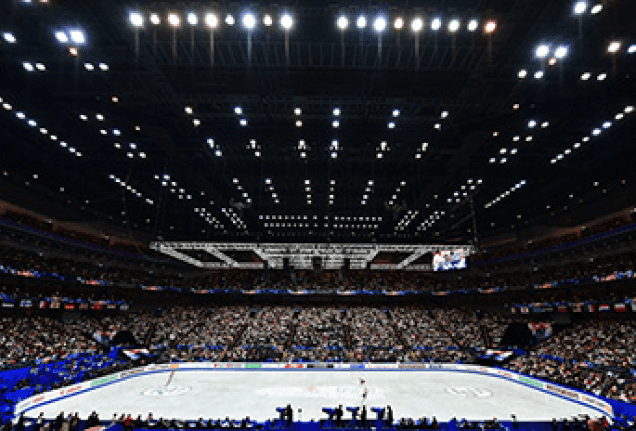
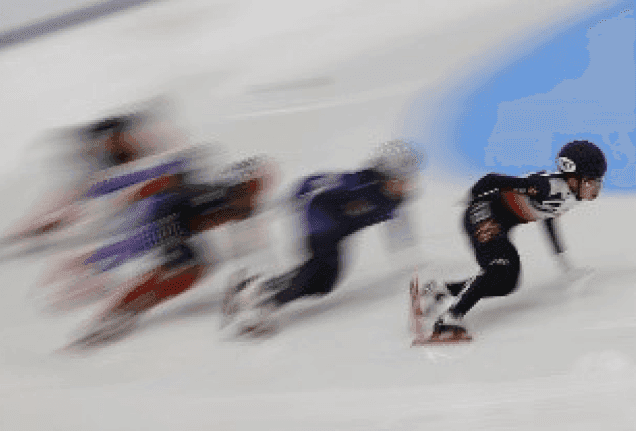

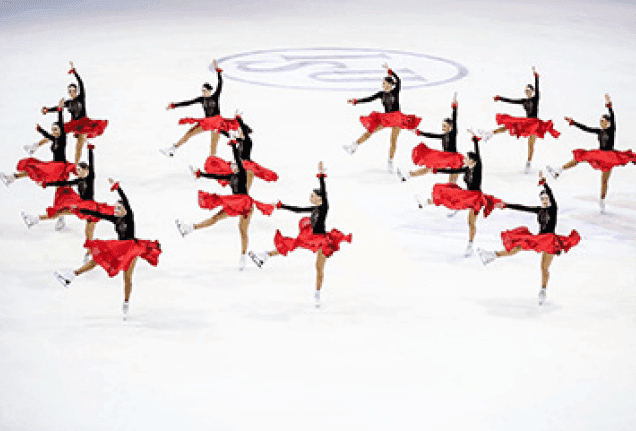
The ISU commits to ensuring that each of the strategic priorities are implemented across the three spheres of influence as per below:
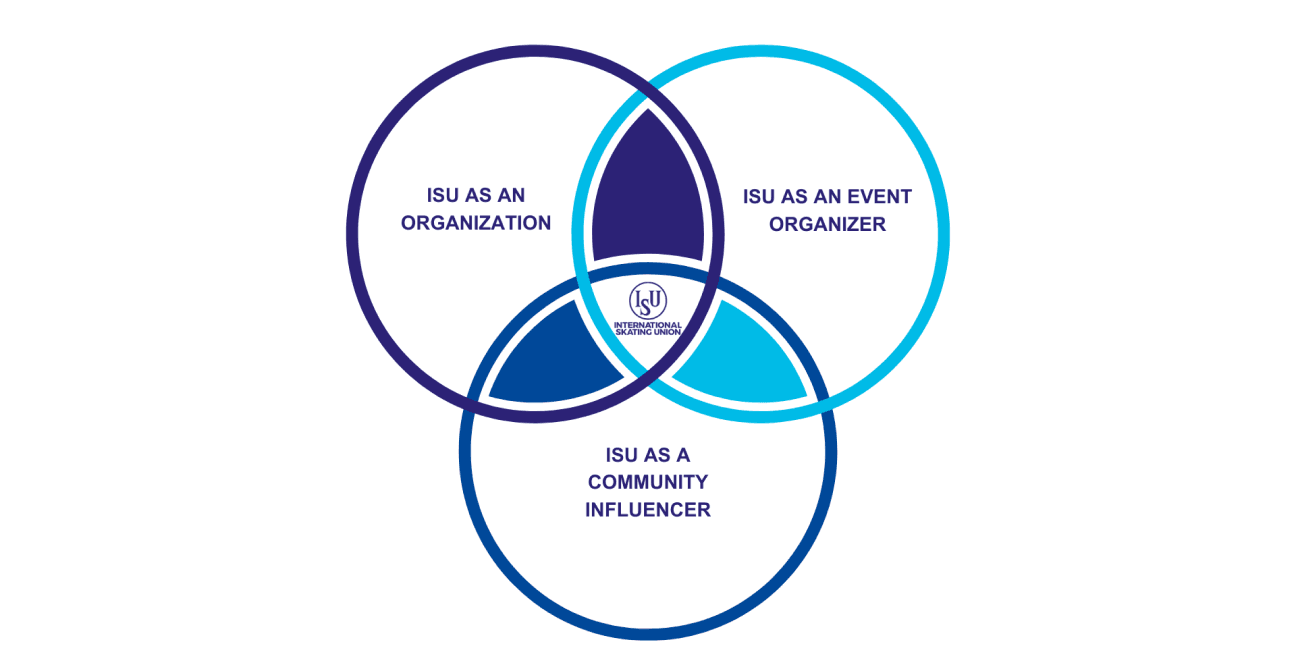
Related Documents
FAQ
- The ISU President is dedicated to ensuring sustainability is integrated across ISU’s activities making it part of the ISU Vision 2030 document.
- The President and all ISU Council members committed to Sustainability as a core priority of ISU when signing the ISU Sustainability Commitment in October 2023.
- The ISU Council approved the ISU Sustainability Strategy in October 2023 and will provide regular oversight on the implementation of the Strategy.
- In 2017, the “Sustainability and Social Responsibility Working Group“ was created that was divided in 2022 into two dedicated Working Groups, the “ISU Good Governance and Social Responsibility Working Group” and the “ISU Environmental Sustainability Working Group”. Both are composed of ISU Council Members and ISU employees.
- The Working Groups formulate action plans linked with the various topics within their mandates. They are supported by staff members throughout the various departments of ISU including events, communications, the internal controller, safeguarding etc.
- Senior management, guided by specialist support from sustainability experts, have been central to the development of the ISU Sustainability Strategy and will be fundamental in its implementation.
- An internal accountability system and adequate resources will be dedicated to achieving the targets outlined in the ISU Sustainability Strategy with continued engagement of ongoing specialist support.
- Principle 1. Protect nature and avoid damage to natural habitats and species. ...
- Principle 2. Restore and regenerate nature wherever possible. ...
- Principle 3. Understand and reduce risks to nature in your supply chains. ...
- Principle 4. Educate and inspire positive action for nature across and beyond sport.
- ISU Secretariat office
- Flights and ground travel of ISU Secretariat, Officials and Athletes
- Ice rinks used for 42 ISU competitions during the July 2018-June 2019 Season (est. 8 days of use/event)
- Event accommodation, food and beverage of 42 ISU competitions
- Waste, goodies and branding (souvenirs, signage, decoration, consumables)
The ISU commits to continually providing more precise evaluation and granularity with regards to its carbon footprint as it obtains enhanced data from its event organizers.
- ISU prioritises Reduction of emissions and Insetting prior to
- ISU commits to supporting Insetting through investment in the reduction of GHG emissions outside of ISU’s own operations, but inside ISU’s value chain such as ice rinks, skating equipment etc.
- In order to offset and compensate for unavoidable emissions that occur as a result of their activities, ISU will invest in initiatives that:
- lead to a reduction in GHG emissions such as renewable energy,
- or an increase in carbon storage through nature based solutions such as forest regeneration.
[1] UNFCCC Sports for Climate Action Framework signatories aim to halve emissions by 2030 and be net zero by 2040. The Swiss Federal Act on Climate Protection Targets, Innovation and Strengthening Energy Security aims for Switzerland to become climate neutral by 2050. ISU is headquartered in Switzerland.




